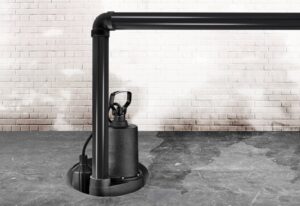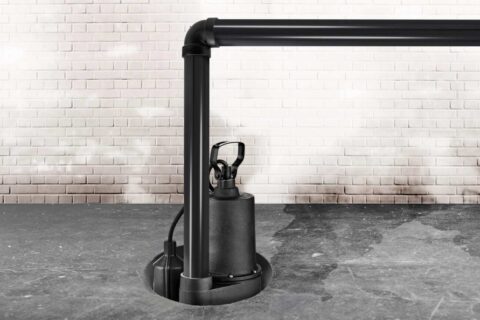The Ultimate Guide to Choosing the Right Sump Pump for Your Home

The Importance of Sump Pumps
In areas where basements are susceptible to flooding because of elevated water tables or frequent heavy rainfall, a sump pump isn’t merely a luxury—it’s a necessity. This vital equipment ensures that water is moved away from your home’s foundation, safeguarding your property and maintaining the structural integrity of your house. Here, we dive into what a sump pump does, how it works, and key considerations to make sure you choose the right sump pump for your home.
Understanding Sump Pumps
So, what does a sump pump do and how does a sump pump work? A sump pump is designed to handle the unwanted water that accumulates in the sump basin, commonly found in the lowest part of a basement or crawlspace. From here, water is pumped out to a place where it won’t pose a risk to the building’s foundation or the interior of the home. Understanding how a sump pump works helps in understanding its importance: it uses a float switch and a mechanical pump to move water from your basement outside through a discharge line, keeping the area dry and free from flood damage.
Types of Sump Pumps
There are two main types of standalone sump pumps: pedestal sump pumps and submersible sump pumps.
Submersible Sump Pumps: These are placed directly in the water of the sump pit. They are usually quieter and more powerful, perfect for homes that experience substantial water accumulation. They are out of sight and less obtrusive but can be more challenging and expensive to maintain and replace due to their location.
Pedestal Sump Pumps: These have a motor mounted above the sump, making them easier to maintain. They are better suited for smaller volumes of water and can last up to 30 years with proper maintenance. However, they are less powerful than submersible pumps and can be noisier since the motor is exposed.
Choosing the Right Sump Pump
Choosing the right sump pump for your home involves proper consideration to make sure that you have an efficient system to manage water intrusion. The decision requires understanding your specific needs based on water volume, basement size, local water table levels, and the potential for power outages. Here’s a detailed guide to help you determine the best sump pump for your situation:
- What Sump Pump Do I Need?
Selecting the appropriate sump pump starts with a thorough assessment of the amount of water you expect to manage. If your basement or crawlspace frequently encounters large volumes of water or if you have a considerable area that needs protection, a submersible pump is likely the best choice due to its high power and larger capacity. These pumps are particularly effective in areas with high water tables where the water accumulation can be significant. The choice also depends on the specific characteristics of your basement—if the space is cramped or if noise is a concern, the submersible pump may be right for your home as it operates more quietly.
- Pumping Capacity
The pumping capacity of a sump pump is an important specification that indicates how much water the pump can move, typically measured in gallons per minute (GPM). The right capacity is key to handling the volume of water you expect during peak conditions without overworking the pump. A higher GPM rating means more power to move water quickly and efficiently. This capacity should align with the size of your property and the usual water inflow during storms. Consulting with professionals like Budget Basement Waterproofing can provide a precise calculation based on these factors, ensuring that your pump is neither under nor oversized.
- Power Considerations
The horsepower (HP) of the sump pump motor is directly linked to its ability to handle large volumes of water. Sump pumps generally range from 1/3 HP to 1 HP. Pumps with higher HP are needed for areas with persistent or high-volume water issues, such as regions with a naturally high water table. However, selecting a pump with more power than you need can lead to higher energy use and quicker wear, increasing operational costs over time. It’s important to balance the need for power with energy efficiency to find a pump that fits both your water management needs and your energy budget.
- Battery Backup Sump Pumps
In regions prone to power outages, a battery backup sump pump may be preferable. These pumps provide peace of mind by ensuring that your sump system continues to operate even when the primary power source fails, such as during severe storms or other power outage events. While they typically do not have the same power capacity as primary sump pumps, their role in flood prevention during outages is critical. Battery backups automatically kick in when the main system goes offline, continuing to pump out water and protect your basement from flooding.
Sump Pump Installation
A sump pump installation can be complex depending on the pump type and the layout of your home’s basement or foundation. Submersible pumps, for instance, require installation in the sump pit and may involve more intricate setup and waterproofing measures. Professional installation is recommended to ensure that the pump is correctly positioned and functioning optimally. Installation costs can differ based on factors such as the pump model, the difficulty of installation, and regional labor rates.
Maintenance and Replacement
Properly maintaining your sump pump is vital for prolonging its lifespan and efficiency. Submersible pumps are typically more sealed against debris but can still require periodic checks, especially of the motor and float switch. Pedestal pumps, being more accessible, may be easier to maintain regularly. It’s recommended to perform maintenance checks at least annually to ensure that the pump operates correctly. Most sump pumps have a lifespan of 7 to 10 years, but this can vary based on the frequency of use and the conditions under which they operate. Regular maintenance helps extend this lifespan, but eventual replacement is necessary to ensure your basement remains dry and protected.
Consult the Experts at Budget Basement Waterproofing
Choosing the right sump pump is essential for protecting your home from water damage, and with over 55 years of expertise, Budget Basement Waterproofing in Maryland is here to guide you through the process. Whether you need a submersible or a pedestal sump pump with a battery backup, we offer expert advice on selecting the perfect type and capacity to ensure your basement remains dry. Join hundreds of satisfied homeowners in Maryland who trust us to keep their basements leak-free. Contact us today online or at 410-609-1240 for a free estimate and enjoy peace of mind with our transferable Lifetime Guarantee.

